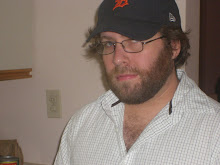I just recently finished reading Rust Hills' classic Writing in General and the Short Story in Particular and must say that I did find it quite useful in settling into the new semester of writing. While the book does focus in very large part on the short story, he does provide highly valuable tips to crafting novels. An act that I've been highly engrossed in for sometime now. The "Bastion" piece is by far larger than I had originally thought it would be, and it is with some fright that it might continue to grow. Regardless, Hills' call for a tightly controlled focus is helping me with this piece. It's actually allowed me to see the beginning in a new and more controlled fashion, one that I've been reworking over the past few days. I'm finding these craft books quite handy in breaking writer's block.
This tight focus on narrative perspective is something that I've become quite fascinated by. When asked to apply some of Hills' theories to some short stories in The Habit of Fiction collection, I became fascinated by the way in which Christie Hodgen uses vignettes in her piece "Three Parting Shots and a Forecast." The story, a wonderful piece of historical fiction, revolves around the assignation of Lincoln as seen through the "eyes" of Booth, Lincoln's chair, Lincoln's Doorman, and Boston Corbett. It's worth a read just for the details she employs in exploring this single most important act through differing viewpoints. The narrative lens is tightly focused on its respective subject matter.
I've often talked to my classes about narrative lens in fiction, but this semester it has spilled over into poetry. I try to compare the speaker of the given work to the camera lens of a director. I often use Wes Anderson, if only because I'm still hooked on his Darjeeling Limited. It seems to help the students to watch the way he uses and relies upon distinctive concrete images to paint his scenes. I noticed a very strong improvement in their narrative control after telling them to watch at least one of his films. Movies still seem to have something valuable to writers. They're not all evil.
Subscribe to:
Post Comments (Atom)


No comments:
Post a Comment